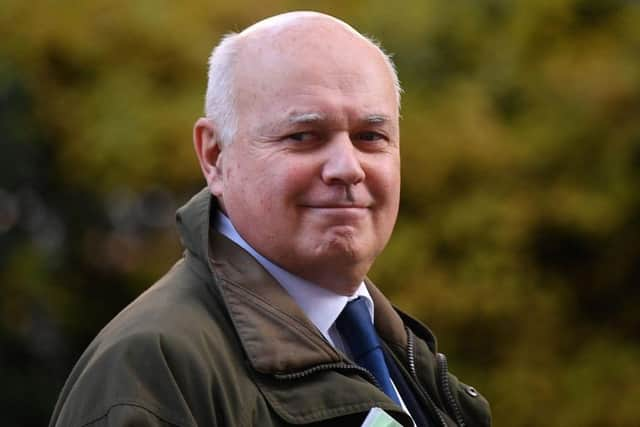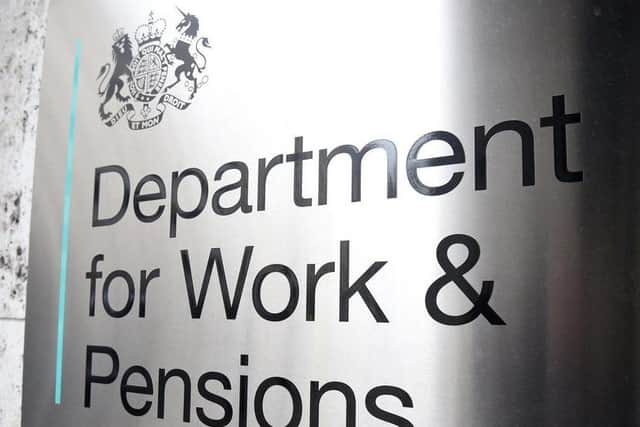Universal Credit: Boris Johnson needs to listen to SNP, Labour and Iain Duncan Smith over £20-a-week benefit cut – Ian Swanson
and live on Freeview channel 276
[Let us know what you think and join the conversation at the bottom of this article.]
Those bold measures included the furlough scheme paying people’s wages, a whole series of grants and loans for firms forced to close – and a £20-a-week uplift in Universal Credit payments.
But such dramatic state intervention went against the Chancellor's free-market instincts. And now it has been announced the £20 uplift – worth £1,000 a year to some of the UK's poorest families – is to be phased out from the end of September.
Advertisement
Hide AdAdvertisement
Hide AdThe SNP's Westminster leader Ian Blackford says the move shows the Tories have no intention of building a "fair recovery" and will effectively cancel out the benefits of Scottish government measures like the Scottish Child Payment. “By slashing the incomes of six million families, the Chancellor will reverse crucial progress being made in Scotland to tackle poverty and send the UK full-steam towards a Tory poverty crisis this winter.”
Labour's Ian Murray called the decision "shameful and callous”. “It’s time the Tories see sense, back struggling families and reverse this cut,” he said.
The STUC labelled the reduction “a disgrace” and claimed it signalled a return to austerity which would further worsen the plight of those hardest hit during the pandemic.


And there is high-profile opposition to the decision even in Tory ranks. Before the announcement was made, six of the party’s former Work and Pensions Secretaries wrote to Mr Sunak urging him to maintain the current level of support.
Advertisement
Hide AdAdvertisement
Hide AdOne of them, Sir Iain Duncan Smith warned that failing to make the uplift permanent would “damage living standards, health and opportunities” for those that “need our support most as we emerge from the pandemic”.
Current Work and Pensions Secretary Therese Coffey sought to justify the end of the higher payment by saying “as we see the economy open up, we shift the focus strongly on to getting people into work and jobs” – an astonishing argument when almost 40 per cent of UC claimants are already in some form of employment.
The Covid crisis has brought hardship for many and reliance on foodbanks has soared. The UC uplift provided a much-needed lifeline.


Charities have warned that ending it will push 200,000 more children below the breadline. How does that fit with the government’s much-vaunted “levelling up” policy?
Advertisement
Hide AdAdvertisement
Hide AdThe government says the uplift was always meant to be temporary, but right from the start organisations working in the field said the increased payments would make a big difference and should be made permanent.
U-turns are not an unknown phenomenon with Boris Johnson’s government.
The extra £20-a-week payments were originally due to end in April but after pressure from anti-poverty campaigners and MPs across the political spectrum, the Chancellor announced a six-month extension.
And thanks to footballer Marcus Rashford’s campaigning, there was also a volte face on the extraordinary reluctance of the government to provide free school meals during holidays.
Advertisement
Hide AdAdvertisement
Hide AdThe government has set the end of September as the date to start phasing out the uplift. There is still time for a change of heart.
A message from the Editor:
Thank you for reading this article. We're more reliant on your support than ever as the shift in consumer habits brought about by coronavirus impacts our advertisers.
If you haven't already, please consider supporting our trusted, fact-checked journalism by taking out a digital subscription.
Comment Guidelines
National World encourages reader discussion on our stories. User feedback, insights and back-and-forth exchanges add a rich layer of context to reporting. Please review our Community Guidelines before commenting.
